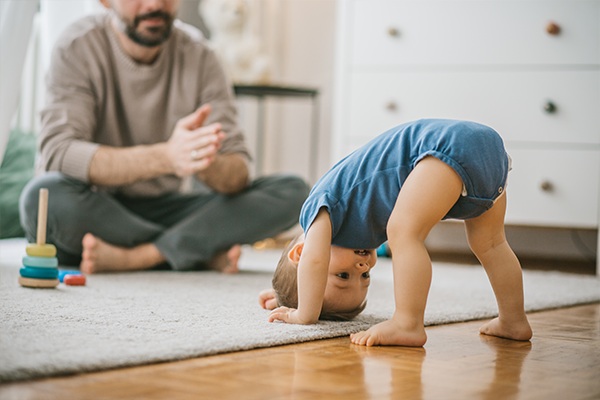 Source: bing.com
Source: bing.comCongratulations! You have made it through the first six months of your baby’s life. Now that your little one is between 7-9 months, you’ll notice some significant developmental changes. This period is an exciting time as your baby continues to grow and learn about the world around them. In this article, we will discuss what to expect during the 7-9 month period of your baby’s development.
Table of Contents
Physical Development
During this stage, your baby will continue to develop their motor skills. At 7-9 months, your baby will sit up without support, roll over from their stomach to their back and from their back to their stomach. They will also start to crawl and may even start to pull themselves up to stand. You may notice that your baby is starting to use their hands and fingers to explore objects around them. They may start picking up small objects with their thumb and forefinger, which is known as the pincer grasp.
Sensory Development
Your baby’s sensory development is also advancing at this stage. Your baby will begin to recognize familiar faces and objects and will be able to tell the difference between colors and textures. Their hearing will continue to improve, and they will start to recognize words and sounds. This is also a good time to introduce different foods with new textures and flavors. This will help your baby develop their taste buds and encourage them to try new foods.
Language Development
Your baby’s language development is also progressing at this stage. They will start to understand simple words like “mama” and “dada” and respond to their name. They may also start to babble and make sounds, which will eventually turn into words. You can encourage your baby’s language development by talking to them and reading to them every day. This will help them learn new words and understand the world around them.
Sleep
At 7-9 months, your baby’s sleep patterns may start to change. They may start to sleep for longer periods at night and take shorter naps during the day. It’s essential to establish a consistent bedtime routine and create a comfortable sleep environment for your little one. This will help them fall asleep faster and stay asleep longer. If your baby continues to have difficulty sleeping, talk to your pediatrician for advice.
Social Development
Your baby’s social development is also progressing at this stage. They will start to show an interest in playing with other babies and children. This is an excellent opportunity for your baby to learn social skills like taking turns and sharing. You can also help your baby’s social development by arranging playdates with other parents and babies.
Frequently Asked Questions
Q: When should my baby start crawling?
A: Most babies start crawling between 6-10 months, but it’s important to remember that every baby develops at their own pace.
Q: How can I help my baby’s language development?
A: Talk to your baby and read to them every day. This will help them learn new words and understand the world around them.
Q: Should I be worried if my baby isn’t crawling yet?
A: No, every baby develops at their own pace. If you have concerns about your baby’s development, talk to your pediatrician.
Q: When should I introduce solid foods?
A: Most babies are ready for solid foods between 4-6 months, but it’s important to talk to your pediatrician before introducing solids.
Q: How can I help my baby sleep better?
A: Establish a consistent bedtime routine and create a comfortable sleep environment for your little one. If your baby continues to have difficulty sleeping, talk to your pediatrician for advice.
In conclusion, the 7-9 month stage of your baby’s development is an exciting time as your baby continues to grow and learn about the world around them. By understanding what to expect during this stage, you can help your baby develop their motor skills, sensory development, language development, sleep patterns, and social skills. As always, if you have any concerns about your baby’s development, don’t hesitate to talk to your pediatrician for advice.
